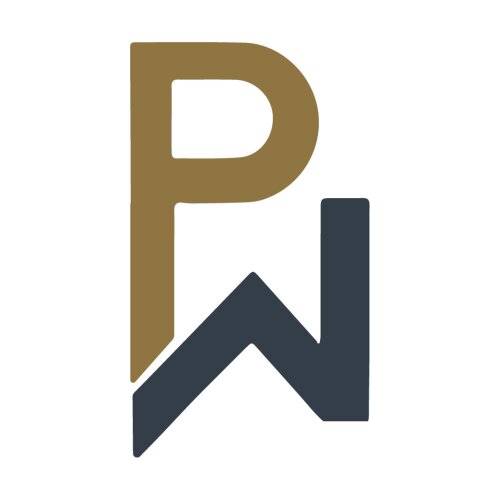Best Foreclosure Lawyers in Dominican Republic
Share your needs with us, get contacted by law firms.
Free. Takes 2 min.
Free Guide to Hiring a Real Estate Lawyer
Or refine your search by selecting a city:
List of the best lawyers in Dominican Republic
About Foreclosure Law in Dominican Republic
The process of foreclosure in the Dominican Republic involves the legal proceedings by which a lender takes back property or real estate due to the borrower’s failure to comply with the terms of their loan agreement. This usually follows a series of missed mortgage payments. Understanding foreclosure regulations in the Dominican context is critical, as they dictate how lenders can enforce their rights to recover debts and how borrowers can defend their interests.
Why You May Need a Lawyer
There are several scenarios in which one might require legal assistance with foreclosure matters in the Dominican Republic:
- If you are at risk of foreclosure due to missed payments and wish to explore your options for negotiating with your lender and potentially keeping your home.
- To understand and navigate the legal complexities and deadlines associated with foreclosure proceedings.
- To explore alternatives to foreclosure such as refinancing or loan modification.
- If you believe your rights as a borrower have been violated.
- To adequately respond to foreclosure notices and defend against the repercussions of the foreclosure process.
Local Laws Overview
The foreclosure process in the Dominican Republic is governed by specific regulations that define both the lender's and borrower's rights and responsibilities. Key aspects include:
- Judicial process: Foreclosure is primarily a judicial procedure, meaning it requires court intervention to enforce.
- Public auction: Properties are typically sold via public auction if foreclosure is finalized.
- Notification requirements: Borrowers must be properly notified through formal legal channels before the foreclosure process can advance.
- Right to redeem: Borrowers have the right to redeem their property by settling the outstanding amount before foreclosure is finalized.
- Legal timelines and procedures established under Dominican law must be strictly followed by both lenders and borrowers.
Frequently Asked Questions
1. What is foreclosure?
Foreclosure is a legal process where a lender seeks to repossess a property from a borrower who has defaulted on a loan.
2. How long does foreclosure take in the Dominican Republic?
The timeline can vary significantly based on the court's schedule, but typically it might take several months from the initiation of proceedings to the public auction.
3. Can I stop a foreclosure?
Yes, borrowers can negotiate with lenders for solutions like loan modifications, refinance, or pay the overdue amount to stop foreclosure proceedings.
4. Will foreclosure affect my credit history?
Foreclosure can negatively impact your credit history, potentially hindering your ability to seek future loans.
5. Are there alternatives to foreclosure?
Alternatives include selling the property independently, negotiating a deed in lieu of foreclosure, or refinancing the loan.
6. Do I need a lawyer for foreclosure?
While not legally required, having a lawyer can significantly help in navigating legal complexities and defending against foreclosure.
7. What happens to my debt after foreclosure?
If auction proceeds do not satisfy the debt, borrowers may still be responsible for any remaining balance, known as a deficiency judgement.
8. Can I buy back my property after foreclosure?
This may be possible through post-auction negotiations, but it would require settling outstanding debts and legal approvals.
9. What are my rights during foreclosure?
You have rights to proper notification, the chance to remedy defaults, and fair legal treatment throughout the foreclosure process.
10. How can economic conditions affect foreclosure?
Economic downturns often increase foreclosure rates, complicating property sales and negotiations, and may influence the courts' caseload.
Additional Resources
When dealing with foreclosure issues in the Dominican Republic, consider consulting the following resources:
- The Superintendency of Banks of the Dominican Republic for relevant regulations and borrower protections.
- The local association of banks and financial institutions for mediation and negotiation assistance.
- Legal aid organizations in the Dominican Republic that offer services to individuals in foreclosure processes.
Next Steps
If facing foreclosure or needing legal advice, your next steps should include:
- Consulting with a legal professional specializing in real estate and foreclosure law to understand your rights and options.
- Communicating with your lender to explore potential settlement or modification opportunities.
- Gathering all relevant documents and records related to your mortgage and financial situation.
- Considering whether alternative solutions, like selling the property, are viable for your situation.
Taking prompt action and seeking legal guidance can significantly influence the outcomes of foreclosure proceedings.
Lawzana helps you find the best lawyers and law firms in Dominican Republic through a curated and pre-screened list of qualified legal professionals. Our platform offers rankings and detailed profiles of attorneys and law firms, allowing you to compare based on practice areas, including Foreclosure, experience, and client feedback.
Each profile includes a description of the firm's areas of practice, client reviews, team members and partners, year of establishment, spoken languages, office locations, contact information, social media presence, and any published articles or resources. Most firms on our platform speak English and are experienced in both local and international legal matters.
Get a quote from top-rated law firms in Dominican Republic — quickly, securely, and without unnecessary hassle.
Disclaimer:
The information provided on this page is for general informational purposes only and does not constitute legal advice. While we strive to ensure the accuracy and relevance of the content, legal information may change over time, and interpretations of the law can vary. You should always consult with a qualified legal professional for advice specific to your situation.
We disclaim all liability for actions taken or not taken based on the content of this page. If you believe any information is incorrect or outdated, please contact us, and we will review and update it where appropriate.
Browse foreclosure law firms by city in Dominican Republic
Refine your search by selecting a city.
















